| Look up europaeum in Wiktionary, the free dictionary. |
Europaeum is an organisation of ten leading European universities.
Europaeum may also refer to:
- EUROPAEUM Institute for European Policy
- Institutum Europaeum, a Belgian think tank
| Look up europaeum in Wiktionary, the free dictionary. |
Europaeum is an organisation of ten leading European universities.
Europaeum may also refer to:
| This disambiguation page lists articles associated with the title Europaeum. If an internal link led you here, you may wish to change the link to point directly to the intended article. |

Bohemia is the westernmost and largest historical region of the Czech lands in the present-day Czech Republic. In a broader meaning, Bohemia sometimes refers to the entire Czech territory, including Moravia and Czech Silesia, especially in a historical context, such as the Lands of the Bohemian Crown ruled by Bohemian kings.
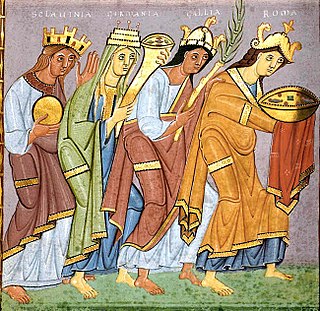
Wends is a historical name for Slavs living near Germanic settlement areas. It does not refer to a homogeneous people, but to various peoples, tribes or groups depending on where and when it was used. In the modern day, Wendish communities exist in Lusatia, Texas, and Australia.

The Reformation was a movement within Western Christianity in 16th-century Europe that posed a religious and political challenge to the Catholic Church and in particular to papal authority, arising from what was perceived to be errors, abuses, and discrepancies by the Catholic Church. Although the Reformation is usually considered to have started with the publication of the Ninety-five Theses by Martin Luther in 1517, there was no schism between the Catholic Church and the nascent Luther until the 1521 Edict of Worms. The edict condemned Luther and officially banned citizens of the Holy Roman Empire from defending or propagating his ideas. The end of the Reformation era is disputed: it could be considered to end with the enactment of the confessions of faith. Other suggested ending years relate to the Counter-Reformation or the Peace of Westphalia. From a Catholic perspective, the Second Vatican Council called for an end to the Counter-Reformation.

Hugh Redwald Trevor-Roper, Baron Dacre of Glanton,, was an English historian of early modern Britain and Nazi Germany. He was Regius Professor of Modern History at the University of Oxford.
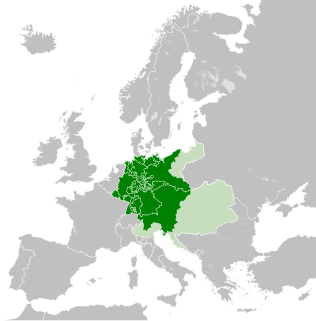
The German Confederation was an association of 39 German-speaking states in Central Europe, created by the Congress of Vienna in 1815 as a replacement of the former Holy Roman Empire, which had been dissolved in 1806. The German Confederation did not include some German-speaking lands in the eastern portion of the Kingdom of Prussia, the German-speaking cantons of Switzerland, and the French region of Alsace, which was predominantly German speaking.
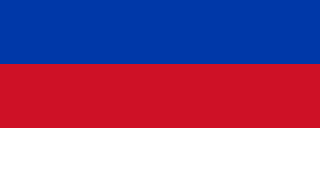
Sorbs are a West Slavic ethnic group predominantly inhabiting Lusatia, a region divided between Germany and Poland. Sorbs traditionally speak the Sorbian languages, closely related to the Polish, Kashubian, Czech and Slovak. Sorbian is an officially recognized minority language in Germany. Sorbs are linguistically and genetically closest to the Czechs and Poles.
The Netherlands is a country located in Northwestern Europe.

Belgians are people identified with the Kingdom of Belgium, a federal state in Western Europe. As Belgium is a multinational state, this connection may be residential, legal, historical, or cultural rather than ethnic. The majority of Belgians, however, belong to two distinct ethnic groups or communities native to the country, i.e. its historical regions: Flemings in Flanders, who speak Dutch and Walloons in Wallonia who speak French or Walloon. There is also a substantial Belgian diaspora, which has settled primarily in the United States, Canada, France and Netherlands.
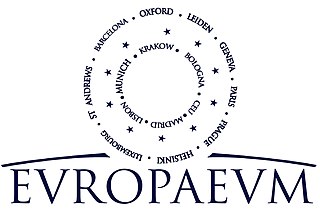
The Europaeum is a network of seventeen leading universities in Europe. It was conceived of in 1990–1991 by Lord Weidenfeld and Sir Ronnie Grierson and they persuaded Roy Jenkins, who had just become Chancellor of the University of Oxford, to push this initiative in conjunction with the universities of Leiden, and Bologna. It has subsequently been supporting the "advancement of education through the encouragement of European studies in the University of Oxford and other European institutions of higher education having links with Oxford."
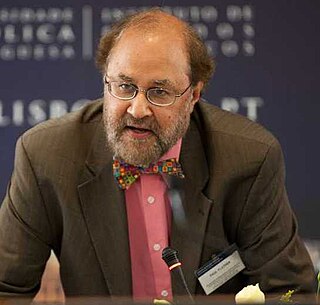
Paul Charles Ram Flather is a British academic. Until 2018 he served as the Secretary-General of the Europaeum, an association of leading European universities, and is Fellow of Mansfield College, Oxford. He is the son of Shreela Flather, Baroness Flather. He was formerly a journalist working for the BBC, Times newspapers and the New Statesman where he was deputy editor. He has written for many publications on education and politics.

The German National Library is the central archival library and national bibliographic centre for the Federal Republic of Germany. Its task is to collect, permanently archive, comprehensively document and record bibliographically all German and German-language publications since 1913, foreign publications about Germany, translations of German works, and the works of German-speaking emigrants published abroad between 1933 and 1945, and to make them available to the public. The German National Library maintains co-operative external relations on a national and international level. For example, it is the leading partner in developing and maintaining bibliographic rules and standards in Germany and plays a significant role in the development of international library standards. The cooperation with publishers has been regulated by law since 1935 for the Deutsche Bücherei Leipzig and since 1969 for the Deutsche Bibliothek Frankfurt.
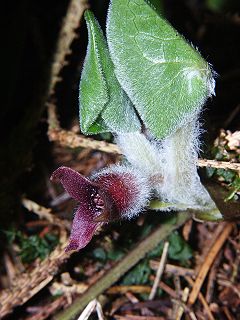
Asarum europaeum, commonly known as asarabacca, European wild ginger, hazelwort, and wild spikenard, is a species of flowering plant in the birthwort family Aristolochiaceae, native to large parts of temperate Europe, and also cultivated in gardens. It is a creeping evergreen perennial with glossy green, kidney shaped leaves and solitary dull purple flowers hidden by the leaves. Though its roots have a ginger aroma, it is not closely related to the true culinary ginger Zingiber officinale, which originates in tropical Asian rainforests. It is sometimes harvested for use as a spice or a flavoring. In former days, it was used in snuff and also medicinally as an emetic and cathartic.

The American Historical Review is a quarterly academic history journal and the official publication of the American Historical Association. It targets readers interested in all periods and facets of history and has often been described as the premier journal of American history in the world. According to the Thomson Reuters Journal Citation Reports, the AHR has the highest impact factor among all history journals at 2.188.

Acta Eruditorum was the first scientific journal of the German-speaking lands of Europe, published from 1682 to 1782.
European, or Europeans, may refer to:
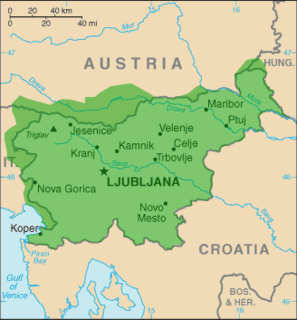
Slovene Lands or Slovenian Lands is the historical denomination for the territories in Central and Southern Europe where people primarily spoke Slovene. The Slovene Lands were part of the Illyrian provinces, the Austrian Empire and Austria-Hungary. They encompassed Carniola, southern part of Carinthia, southern part of Styria, Istria, Gorizia and Gradisca, Trieste, and Prekmurje. Their territory more or less corresponds to modern Slovenia and the adjacent territories in Italy, Austria, Hungary, and Croatia, where autochthonous Slovene minorities live. In the areas where present-day Slovenia borders to neighboring countries, they were never homogeneously ethnically Slovene.

A newspaper is a periodical publication containing written information about current events and is often typed in black ink with a white or gray background.
The Sophie Digital Library is a digital library and resource center for works produced by German-speaking women pre-17th century through the early 20th century, a group that has often been underrepresented in collections of historical printed works.
Theatrum Europaeum was a journal on the history of the German-speaking lands by Matthäus Merian, published between 1633 and 1738 in 21 quarto volumes.
Diarium Europaeum was a journal on the history of the German-speaking lands founded by Martin Meyer and published between 1659 and 1683 in 45 volumes.